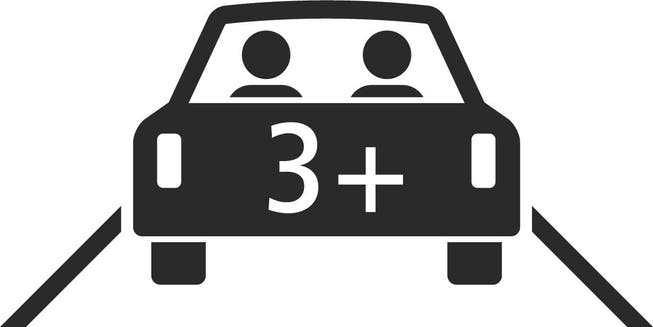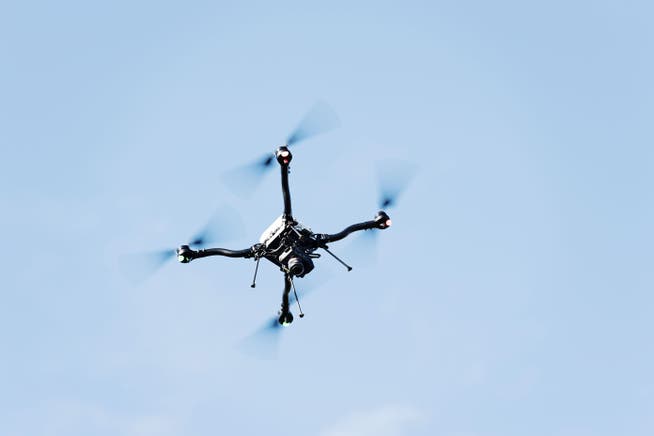Responses to inflation, initiatives or social change: At the turn of the year, some changes in laws and regulations come into force. An overview of the most important adjustments.
Anyone who has their children looked after by someone else can deduct up to 15,000 francs more from their taxes this year.
inheritance law: According to federal figures, the parents of every tenth Swiss household already live together. Second and third marriages and living together in patchwork families are no longer the exception. These new realities of life are taken into account in the revision of inheritance law. The testator has more flexibility to decide about his or her estate. The compulsory share of the descendants is reduced from three quarters to half, that of the parents is completely abolished. The compulsory share for the spouse or registered partner remains the same.
Childcare: If parents have their children looked after externally, they can now deduct up to CHF 25,000 from direct federal tax. Previously, the maximum deduction was CHF 10,100 per child per year. The change leads to annual losses of around 10 million Swiss francs for the federal government.
Adoption: Adoption leave already exists in several cantons and is now being introduced at national level: people who adopt a child under the age of four are entitled to two weeks’ paid leave. If both parents work, they have to divide the two weeks between themselves. However, vacation days may not be taken at the same time. There is no entitlement to adoption leave when adopting a stepchild.

Operation in an emergency at the University Hospital Zurich: The federal government has issued new measures to curb healthcare costs.
cost containment: With the start of the new year, the Federal Council issued a new set of measures to curb the rise in healthcare costs. Service providers such as hospitals, doctors and insurance companies are obliged to provide the federal government and cantons with data free of charge if they need the information, for example to set tariffs in the outpatient sector – there is great potential for savings here. An experimental article is also intended to provide breeding ground for testing new, innovative models for cost containment.
health insurance companies: The premiums will rise by 2023, by a full 6.6 percent – more than they have been in twelve years. The average monthly premium is 335 francs; Adults pay even more on average, namely almost 400 francs a month.
Corona tests: As of this year, the tests have to be paid for – regardless of whether the test is due to an upcoming trip or because of symptoms. The health insurance companies only cover the costs in exceptional cases. The change came as a surprise to some of the test centers, and the number of tests on offer is steadily declining, as the example of the canton of Zurich shows.

The Federal Council can now intervene to coordinate the planning and implementation of cycle paths.
Bike paths: In 2018, the people and the cantons approved a federal law on cycle paths, which will come into force in 2023. This means that the paths for two-wheelers are treated the same as footpaths and hiking trails at the federal level. The Confederation now has the authority to support and coordinate measures taken by the cantons and third parties to maintain and create cycle paths.
Tempo 30: The Federal Council has removed the bureaucratic hurdles to creating 30 km/h zones. The authorities must decree and publish the arrangement of such zones in non-traffic-oriented streets, but no longer need an expert opinion for this.
Car pooling: The Federal Council wants to promote carpooling. From 2023, the introduction of privileges for cars in which at least two people are sitting will also be possible in Switzerland. For example, the responsible authorities can only reserve certain lanes for so-called car pools or reserve parking spaces for them. There is also a new traffic sign for this: It shows a car with several occupants and a number that indicates how many people must be in the car at least.

The new icon for car pooling.
Ticket: From April, Switzerland will receive a new driving license. This should be forgery-proof. The old driving licenses are still valid. If you want to exchange yours, you can do so for a fee.

AHV and IV pensions and supplementary benefits will be increased due to inflation.
AHV and IV pensions: The pensions for retirees and disabled people with a full contribution period will increase by 30 to 60 francs in 2023 and will thus be adjusted to current price and wage developments. The minimum pension from AHV/IV is now CHF 1,225 (previously CHF 1,195) and the maximum pension is CHF 2,450 (previously CHF 2,390) per month. The adjustment also affects occupational pensions: the coordination deduction will be increased from CHF 25,095 to CHF 25,725, and the entry threshold will rise from CHF 21,510 to CHF 22,050.
Supplementary services: Here, too, the federal government takes the higher cost of living into account. For single people, the amount to cover general living needs increases from 19,610 to 20,100 francs per year, for married couples from 29,415 to 30,150 francs. Children over the age of 11 now receive CHF 10,515, children under the age of 11 CHF 7,380.
Third pillar: The maximum amount for the third pillar will be increased for 2023. Persons with a pension fund can deduct CHF 7,056, persons without a pension fund a maximum of 20 percent of their net income.
Unemployment insurance: Since 2011, anyone earning more than 148,200 francs has had to make a solidarity contribution to unemployment insurance together with their employer, amounting to one percent of their salary. The contributions served to restructure the ALV. Since it was completed at the end of 2022, no more solidarity contributions will be due from January 1st.
Asylum: The Confederation is now paying a global flat rate to the cantons for all 18 to 25-year-old refugees and temporarily admitted persons, regardless of whether they are gainfully employed or taking up training. The federal government argues that this will eliminate a misguided incentive to the detriment of vocational training.

Anyone who flies a drone with a camera or a drone that weighs more than 250 grams must take an exam from 2023.
Terrorism: Access to commercially available materials from which home-made bombs for terrorist attacks, but also for ATM robberies can be made, is restricted for private individuals. About a hundred products are affected, which are mainly available in pharmacies or drugstores. Low concentration products are not affected. For those with higher concentrations, approval from Fedpol is now required.
To deal with a terrorist situation, the Federal Council has also introduced a political coordination body, the National Terrorism Committee (Nata). In the event of terrorism, this body should bring the cantons and the federal government together and take over communication.
money laundering: With the new year, the revised Money Laundering Act will also come into force. The revision promotes the transparency of associations with an increased risk of terrorist financing and strengthens the supervision and controls in trading in precious metals. In addition, financial intermediaries are subject to greater obligations in the areas of beneficial ownership, up-to-dateness of customer data and reports of suspected money laundering. However, lawyers and notaries are not affected. However, that could change as the year progresses.
drones: Switzerland will take over the European drone regulation on January 1, 2023. The regulations include new maximum flight altitudes, weight limits, area restrictions and privacy regulations. In addition, pilots of drones that weigh more than 250 grams or have a camera will have to take an exam in the future.
Company law: In 2023, with the entry into force of more flexible foundation and capital regulations for stock corporations, the revision of stock corporation law and the implementation of the “against rip-off” initiative from 2013 will be completed.
Value added tax: Volunteer and non-profit sports and cultural clubs with a turnover of less than 250,000 francs no longer have to pay VAT from this year. The limit was previously CHF 150,000.

Plant protection products that pose a major risk to humans, animals or the environment are now banned.
Pesticides: From 2023, there will be a ban on plant protection products with a high potential risk, i.e. those that have unacceptable side effects on human or animal health or on the environment. This implements part of the parliamentary initiative that aims to halve the risks associated with the use of plant protection products by 2027.
Wolf: The federal government pays higher contributions for sheep that are kept on the alp in summer to protect them from wolves in protected pasture systems.
Legumes: Starting this year, the federal government will not only support the cultivation of legumes for the feeding trough, but also those that end up on the plate. There are CHF 1,000 per hectare for beans, peas, chickpeas, lupins or lentils. The reason is the trend towards plant-based nutrition.
